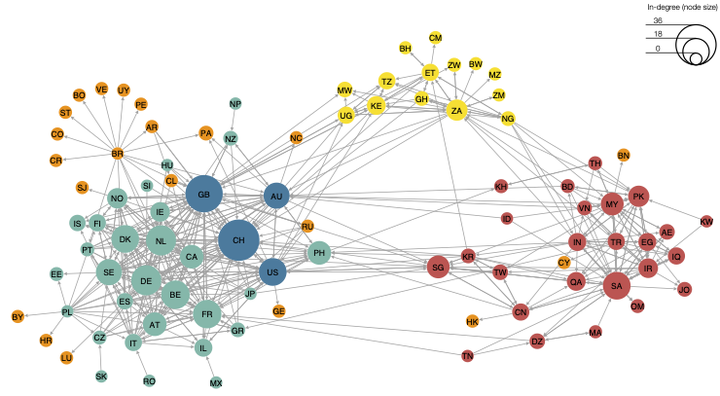 The positive international network of scientific citation preferences.
The positive international network of scientific citation preferences.
Abstract
The global scientific landscape emerges from a complex interplay of collaboration and competition, where nations vie for dominance while simultaneously fostering the diffusion of knowledge on a global scale. This raises crucial questions: What underlying patterns govern international scientific recognition and influence? How does this structure impact knowledge dissemination? Traditional models view the global scientific ecosystem through a core-periphery lens, with Western nations dominating knowledge production. Here, we investigate the dynamics of international scientific recognition through the lens of national preferences, introducing a novel signed measure to characterize national citation preferences and enabling a network analysis of international scientific recognition. We find that scientific recognition is related to cultural and political factors in addition to economic strength and scientific quality. Our analysis challenges the conventional core-periphery narrative, uncovering instead several communities of international knowl- edge production that are rapidly fragmenting the scientific recognition ecosystem. Moreover, we provide compelling evidence that this network significantly constrains the diffusion of ideas across international borders. The resulting network framework for global scientific recognition sheds light on the barriers and opportunities for collaboration, innovation, and the equitable recognition of scientific advancements, with significant consequences for policymakers seeking to foster inclusive and impactful international scientific endeavors.